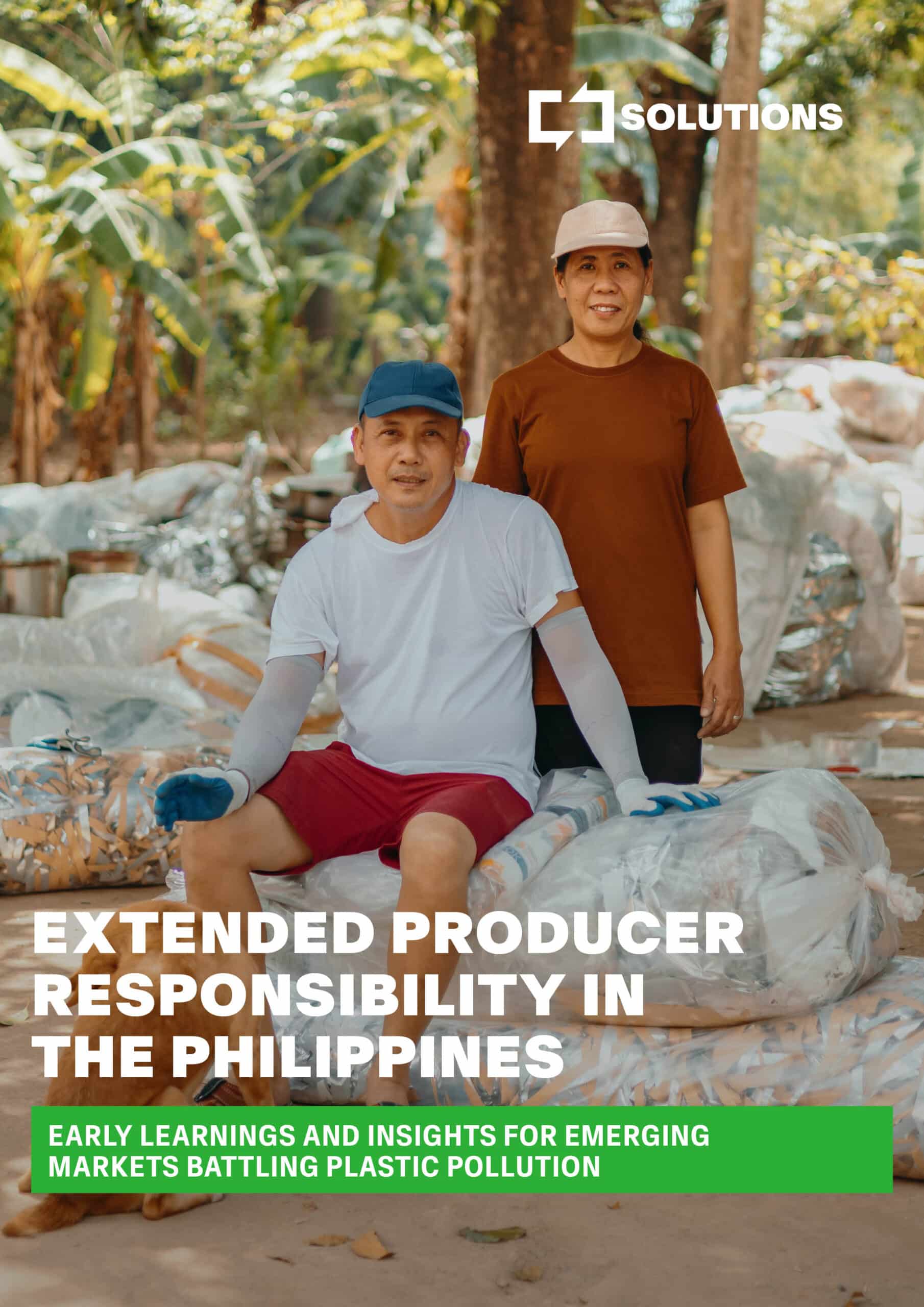rainbow game New EPR law making inroads vs waste, pollution


PCX Solutions’ case study shows that while it’s still early days, the country’s approach to EPR (Extended Produce Responsibility) is showing promising results
The Philippines, made up of thousands of islands with a limited and fragmented waste management infrastructure, is one of the world’s largest contributors of marine plastic litter. This is made worse by the “sachet economy,” where brands deliver goods in small units that are affordable for the majority of the population.
Two years ago, the Philippines rolled out one of the world’s most ambitious laws on Extended Producer Responsibility (EPR), which holds manufacturers accountable for waste resulting from their products and packaging to enable a circular economy. That act, which lapsed into law in 2023, requires companies with at least P100 million in assets to take responsibility for an increasing percentage of their plastic footprint, rising from 20 percent in 2023 to 80 percent in 2028.
Article continues after this advertisement Case studyA case study published by PCX Solutions, “Extended Producer Responsibility in the Philippines: Early Learnings and Insights for Emerging Markets Battling Plastic Pollution,” shows that while it’s still early days, the country’s approach to EPR is showing promising results.
FEATURED STORIES GLOBALNATION DFA coordinating with US over detention of Garma, daughter GLOBALNATION Palace: Duterte free to surrender to ICC if he wishes GLOBALNATION Duterte dares ICC to begin probe immediately: 'Baka mamatay na ako'The Department of Environment and Natural Resources’ Environmental Management Bureau (DENR-EMB) estimates that 2,130 businesses fall into the current Obliged Enterprise scope. Per the DENR-EMB, as of August 2024, a total of 947 companies had registered an EPR program. Together, those companies enabled the recovery and diversion of 163,000 metric tons of post-consumer plastic packaging waste in 2023.
While not all Obliged Enterprises complied in the first year, continued education efforts aimed at raising awareness and compliance levels are ongoing. Companies that don’t comply also face escalating fines, and ultimately the loss of their business license for repeated offenses. The majority of the largest plastic packaging producers have complied, and many went beyond the minimum 20 percent recovery target for 2023, indicating strong support among the country’s largest Obliged Enterprises.
Article continues after this advertisementThere are still significant milestones to unlock, like dealing with decades of legacy plastic pollution; enabling policies to create the supply and demand for recycled materials and to reduce and eliminate unnecessary plastic packaging; further mechanisms and guidance to achieve social inclusion and just transition; and national standards to establish transparency, credibility, and accountability, according to PCX Solutions’ analysis.
Article continues after this advertisementBut enacting and implementing EPR has allowed the country to see immediate results, start constructive discussions, realize and understand the gaps, and gather support from stakeholders through an inclusive and systematic approach.
Article continues after this advertisement“This case study offers insights and analysis for other developing countries in a similar situation to boldly and urgently address the problem, and for negotiators of the UN plastics treaty to consider innovative approaches and voices from the Global South,” said Stefanie Beitien, managing director of PCX Solutions.
Pragmatic approachThere are already well-established EPR regimes in a number of developed markets, including Europe, Japan, South Korea, and Taiwan, which typically involve government-funded collection, sorting, and processing of plastic waste.
Article continues after this advertisementThe Philippines has taken a pragmatic approach and crafted an accessible law that makes these goals achievable. There are six upstream measures that can reduce a company’s footprint, such as the use of recycled content, reusable packaging, or refilling; and six downstream measures to recover their footprint, plastic crediting being one of them.
“The Philippines’ approach shows that a market-based mechanism like credits, which facilitates the cleanup of plastic waste and encourages the private sector to invest in waste infrastructure, can play a pivotal role in supporting EPR laws, particularly in emerging markets that lack collection and recycling systems,” said Nanette Medved-Po, founder of PCX Solutions.
Subscribe to our daily newsletter
PCX Solutions is on a mission to accelerate the transition to a circular economy and build a future where no plastic waste ends up in nature. Headquartered in Manila, the nonprofit organization works with governments around the world on EPR schemes; helps companies understand their plastic footprintrainbow game, implement reduction strategies, comply with existing legislation; and manages a fully transparent, third-party audited Plastic Pollution Reduction Standard to ensure the impact and responsibility of plastic waste projects, channeling funding into recycling infrastructure and increasing socioeconomic benefits.
READ NEXT PH fights plastic blight Marcos meets Pacific Century Fellows to strengthen PH-Hawaii ties EDITORS' PICK Manila Water champions sustainability with climate change policy Duterte: I killed 6 or 7 people in Davao, including erring cops 8 movies to watch when you’re too down to study Duterte dares ICC to begin probe immediately: ‘Baka mamatay na ako’ Tensions flare as Brosas, Duterte trade barbs in drug war hearing BARMM election code, IRR violate PH Constitution – Escudero MOST READ PH fishers report latest Chinese ‘ramming,’ blockade at Escoda Duterte threatens to slap, hit Trillanes with mic at drug war probe LIVE UPDATES: Typhoon Ofel Sara asks senators to restore cut in OVP budget: 200 could lose jobs Follow @FMangosingINQ on Twitter --> View comments
